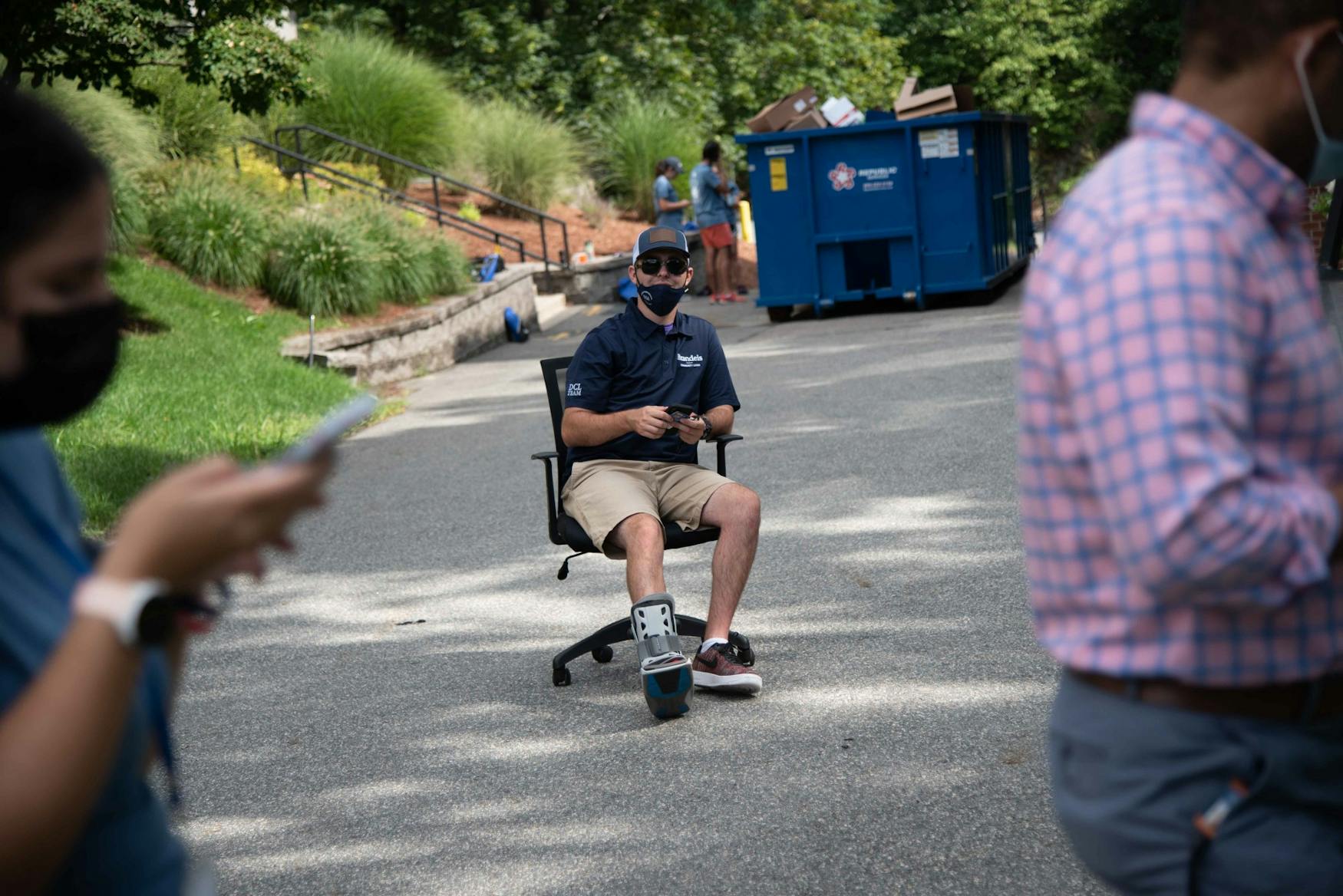A ‘thank you’ is no longer enough for Community Advisors
Messages of gratitude were plentiful during Community Advisor training at the start of the Fall 2021 semester from administrators, including Vice President Raymond Ou and Assistant Vice President Shelby Harris. For those unaware, Community Advisor, sometimes known as Residential Advisors at other institutions, are a resource for students in residential halls. The gratitude we received for supporting the Brandeis student population was meant to applaud all of our past, current, and continued hard work within residence halls throughout the pandemic.
As a Head Community Advisor in Village Residence Hall, I was overjoyed to hear that administrators saw my and peers’ hard work and dedication. However, this feeling was short-lived when we entered into another school year where the positions of my fellow CAs and I were and are not fully and fairly compensated. Comparable institutions in the Boston area, such as Boston College and Bentley University, have compensated their RAs and CAs with full room and board and in some cases, a stipend to compensate their labor for on-call hours. Brandeis University is one of the few institutions where this is not the case. This lack of compensation has been particularly concerning over the past two semesters, where our job requirements placed all of us at increased risk for contracting COVID-19. These requirements even caused some of us to contract COVID-19 while completing our jobs. COVID-19 exacerbated this injustice, but this problem has existed and will continue to exist without necessary interventions. Prior to the spring of 2019 and continuing throughout this academic year, CAs have been interacting with crises on campus regardless of their nature.
This places us in a unique position where we see trends of issues on campus and have consistently communicated this upwards to supervisors and administrators. Providing this information to administrators for the creation and implementation of solutions has remained a challenge. This upwards communication can feel counterproductive and confusing. This is in part because of a system that does not include effective communication, leading some of the conversations that I have had to feel like a means of appeasement, where a solution is either unfound or found as close to what already exists. Through the years of vocalizing the need for CA compensation, other CAs and I have been met with vast amounts of information, making it unclear who we should be communicating with to best advocate for full and fair compensation. Increased communication with tangible next steps and updates from administrators that CAs meet with is a need for CAs to be able to effectively serve students and ourselves.
Community Advisors no longer want change and increased compensation. We now need it. We must work through pandemics, over breaks, effectively communicate with supervisors and administrators, and support the Brandeis community at large, among other job responsibilities. Additionally, taking on the CA job comes with an adjusted financial aid package which, for many CAs like myself, restricts our job prospects on campus and the hours we may work. It is as though, according to the financial aid structures in place, being a CA is viewed as having more compensation than CAs like myself experience.
For me, the adjustments to my financial aid package left me wondering how I would continue to pay for my education at Brandeis. When I sought out a job, there were conflicts because my work-study had been revoked.
Additionally, as we complete these job responsibilities over breaks during the semester, we are subjected to food that poorly contributes to our overall health while we are already giving up precious time to relax during stressful semesters. With Brandeis University’s new contract with their new vendor, will Brandeis demonstrate the value of the work that we do as CAs through full compensation of meal plans for CAs?
CAs and students have signed a letter outlining demands that CAs need in order to continue to serve the Brandeis Community to the best of our ability. I, along with other students and CAs now await a response and follow-up actions from administrators regarding our important community impacting concerns. Will Brandeis demonstrate its social justice principles? Finally, are we as students and CAs valued by the administration of Brandeis University or will our concerns, like that of many other students on campus, be pushed aside once again?



Please note All comments are eligible for publication in The Justice.